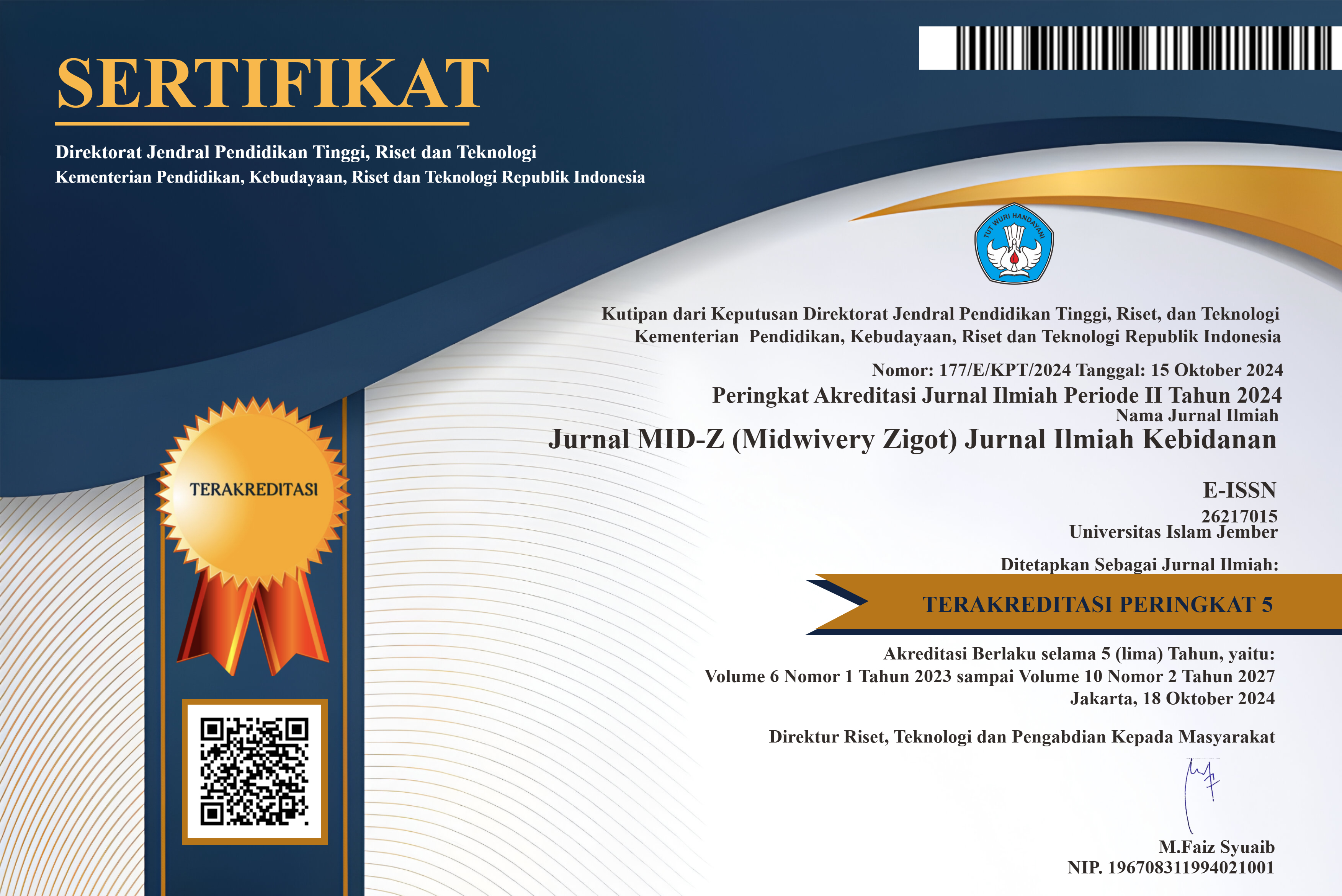Factors Related to The Use of Intraceptive Devices IUD
DOI:
https://doi.org/10.56013/jurnalmidz.v6i2.2373Abstract
Contraception serves as a proactive measure to prevent pregnancy. WHO data reveals a global trend of increased use of contraceptive, particularly in Asia and Latin America, while Sub-Saharan Africa lags behind. Modern contraceptive adoption has experienced a modest rise, from 54% in 1990 to 57.4% in 2014. This increase is more pronounced in Africa, with figures climbing from 23.6% to 27.6%, in Asia from 60.9% to 61.6%, and Latin America and the Caribbean witnessing a slight ascent from 66.7% to 67.0% (WHO, 2020). This study explored the relationship between knowledge, attitude, and spousal support in relation to the use of Intrauterine Contraceptive Devices (IUCDs). This observational study was performed using an analytical casecontrol
approach, involving 736 active contraceptive users in 2023 at the Pengandonan Community Health Center as the population. Non-probability consecutive sampling was performed to select 56 respondents. Chi-square statistical test was performed to analyze the data, which results showed the presence of a significant relationship between knowledge (p-value = 0.007), attitude (0.003), and husband's support (p-value = 0.000) on the use of Intrauterine
Contraceptive Device (IUCD). These findings serve as the guidelines for midwives developing and improving the management strategies to promote contraceptive IUCDs use.
Downloads
Published
How to Cite
Issue
Section
License
Copyright (c) 2023 Mutia Rahayu, Rizki Amalia, Fika Minata, Syarifah Ismed

This work is licensed under a Creative Commons Attribution-ShareAlike 4.0 International License.
Jurnal Mid-Z (Midwifery Zigot) Jurnal Ilmiah Kebidanan memberikan akses terbuka terhadap siapapun agar informasi dan temuan pada artikel tersebut bermanfaat bagi semua orang. Semua konten artikel Jurnal Mid-Z (Midwifery Zigot) Jurnal Ilmiah Kebidanan dapat diunduh secara gratis tanpa dipungut biaya sesuai dengan lisensi creative commons yang digunakan.

Jurnal Mid-Z is licensed under a Creative Commons Attribution 4.0 International License






















